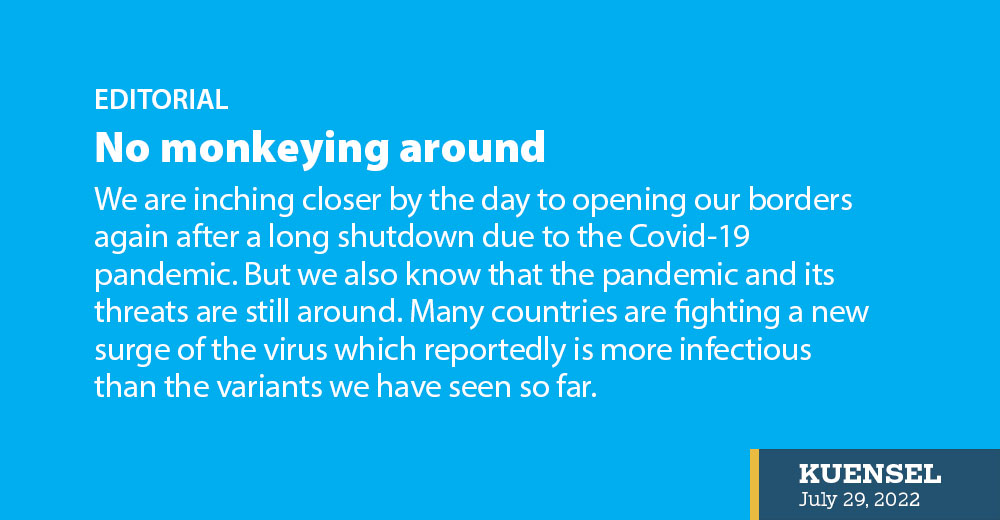We are inching closer by the day to opening our borders again after a long shutdown due to the Covid-19 pandemic. But we also know that the pandemic and its threats are still around. Many countries are fighting a new surge of the virus which reportedly is more infectious than the variants we have seen so far.
Wuhan, China, known around the world in early 2020 as the first place scientists detected the new coronavirus—the first city to be put under harsh restrictive measures—is under strict lockdown again.
There was a time when such troubles could easily be kept at bay. Not anymore. The world has shrunk so much since them. Greater connectivity, today, bring to our doors blessings and bane both. Hardly has Covid-19 left us and a new problem has us looking for more safety measures.
Monkeypox, a disease of global public health importance, is around the corner. Although endemic mostly in central and western Africa, cases are increasingly being reported from non-endemic countries. The World Health Organization has already declared monkeypox a global health emergency and is calling for a co-ordinated international response.
Should we be worried about the global outbreak of monkeypox? Of course, we should be. India has already reported cases of monkeypox.
Monkeypox is a zoonosis, an extremely rare disease transmitted from animals to humans; it is recognised as a much less severe cousin of smallpox. WHO says that the situation is evolving; as surveillance expands, more cases are expected from more non-endemic countries.
Usually self-limiting, studies have shown that monkeypox may be severe in some individuals, such as children, pregnant women, or persons with health conditions.
Surveillance and rapid identification of new cases will be critically important because prevention, always, is better than cure.
What we know is that infected persons are the most significant risk factor, which is why raising awareness about risk factors and educating people about prevention measures will go a long way in reducing exposure to the virus.
There is, as yet, no proven treatment for the virus infection, but since monkeypox is related to smallpox, the smallpox vaccine is known to also protect against monkeypox, with a greater than 85 percent efficacy, according to some reports.
We also know that the disease is preventable. As with all diseases, there is no better measure than maintaining personal hygiene and care.
It is a big relief to know that the Ministry of Health has already developed monkeypox management guidelines and the surveillance system has been activated.
More than anything else, maintaining good personal hygiene, wearing face mask and being aware of the signs and symptoms of monkeypox such as rash with blisters on the face, hands, feet, body, eyes, mouth or genitals is important. If you have a fever, swollen lymph nodes, headache, muscle ache and backache, don’t wait. Seek health advice immediately.


